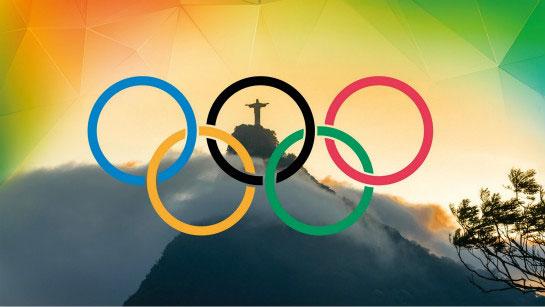世界体育发展英语怎么说
Title: The Global Evolution of Sports: A Linguistic Perspective
Sports have always served as a universal language, transcending borders and cultures. In the realm of international sports development, English has emerged as the lingua franca, facilitating communication and collaboration among athletes, officials, and fans worldwide. This article delves into the evolution of English within the global sports landscape, examining its influence, challenges, and future prospects.
The dissemination of English in sports can be traced back to the British Empire's expansion and the subsequent spread of British culture and influence. As colonial territories adopted British sports like cricket, rugby, and football, they also adopted English as the language of sport.
English has become the primary language of sports governance, with international bodies such as the International Olympic Committee (IOC) and FIFA conducting official business in English. This dominance extends to sports media, where Englishlanguage broadcasts and publications reach a global audience.
While English facilitates communication in the sports world, its hegemonic status has faced criticism. Some argue that it marginalizes nonEnglishspeaking athletes and reinforces cultural imperialism. Moreover, linguistic barriers can impede access to opportunities for athletes and officials from nonEnglishspeaking regions.

To address linguistic inequalities, sports organizations have implemented measures such as translation services, language education programs, and multilingual communication channels. Embracing linguistic diversity not only promotes inclusivity but also enriches the global sports community.
As sports continue to globalize, the role of English is likely to evolve. While it will remain indispensable for international communication, there is a growing recognition of the importance of multilingualism. Embracing diverse languages and cultures can foster greater unity and mutual understanding in the world of sports.
English has undeniably played a pivotal role in shaping the global sports landscape. Its widespread use has facilitated collaboration and connectivity across borders. However, efforts to promote linguistic diversity and inclusivity are crucial for ensuring that all athletes and stakeholders can fully participate in and benefit from the world of sports.
体育资讯
MORE>-
02-23少女花150元文身,清洗需76.9万元
-
02-23哪吒周边市场惊现盗版,商家获利200万元
-
02-23一场激情与实力的碰撞——预测与故事
-
02-23美国将完全退出联合国?联合国回应
-
02-23特朗普撤换美军最高将领,影响与后果
-
02-23俄罗斯与比利时实力对比与前景展望
-
02-22历史对决,实力较量——一场激情与智慧的足球盛宴
-
02-22欧洲杯积分榜——最新赛况与分析
-
02-22世界级对决,谁能笑到最后?
-
02-21瑞士VS威尔士,竞技与友谊的交织之旅
-
02-21房价止跌回稳,一线城市房价将保持稳定
-
02-21征服哥本哈根,曼彻斯特城在英超联赛中的实力与决心
-
02-21员工偷换理发店收款码3年窃取189万,道德沦丧还是管理漏洞?
-
02-21国产剧告别假穷人,真实主义的胜利
-
02-21布鲁日 vs 马竞——引言与引子碰撞的精彩时刻
- 搜索
- 最近发表
-
- 春回大地农事起 春耕备耕正当时
- 少女花150元文身,清洗需76.9万元
- 一届震撼人心的全明星赛——2012年NBA全明星录像回顾与解读
- 老师一堂课没收几十个裂空爪
- 法国在国际足坛的荣耀新篇章,从欧洲最后堡垒的黯淡到王者归来
- 内地版萧亚轩——张雨绮
- 从NBA全明星赛录像,解读2023年扣人心弦的赛事
- 外卖小哥的感激之情
- 超级巨星云集,美国足球联赛的燃情较量即将上演!
- 农文旅融合绘就美丽乡村新图景
- 史诗般的半决赛之旅,不容错过的精彩瞬间
- 哪吒周边市场惊现盗版,商家获利200万元
- 一场激情与实力的碰撞——预测与故事
- 美国将完全退出联合国?联合国回应
- 梦幻十一人,解读巴塞罗那最佳阵容,定义卓越表现与潜力展示
- 特朗普撤换美军最高将领,影响与后果
- 西方世界视角下的袁隆平,一位影响深远的中国科学家
- 小因扎吉引领国际米兰新篇章,深度解析与实用建议
- 俄罗斯与比利时实力对比与前景展望
- 孙莉再战大银幕,女神归来的魅力依然闪耀,唐诗三百首的全新演绎
- 标签列表
-
- 欧洲杯 (9)
- 欧洲杯都有哪些球队参加 (13)
- 2024欧洲杯比赛时间 (14)
- 2024欧洲杯百度百科 (18)
- 2024年欧洲杯预选赛 (15)
- 欧洲杯为什么不是2020 (8)
- 欧洲杯如何竞猜 (9)
- 欧洲杯小组赛怎么分组 (11)
- 欧洲杯2024在哪个国家 (9)
- 欧洲杯比赛时间表 (8)
- 在哪里可以看欧洲杯预选赛 (11)
- 欧洲杯在哪个国家举行2024 (10)
- 2024欧洲杯主办城市 (16)
- 欧洲杯为什么没有中国 (12)
- 欧洲杯哪个球队身价最高 (9)
- 欧洲杯多少支球队参加 (11)
- 欧洲杯共多少场比赛 (11)
- 欧洲杯的球队有哪些 (9)
- 欧洲杯为什么没有直播 (9)
- 欧洲杯参赛球队有几支 (15)
- 欧洲杯一共多少球队 (11)
- 咪咕视频体育直播 (12)
- 世界杯亚洲区预选赛 (9)
- 直播吧 (14)
- 直播间买翡翠原石被骗 (9)





